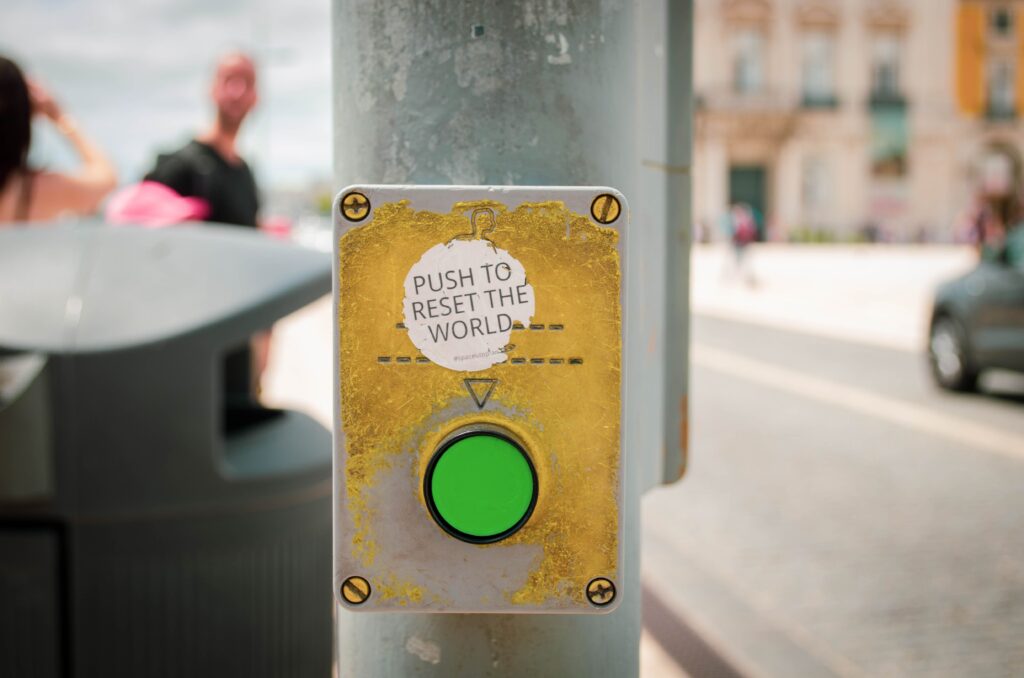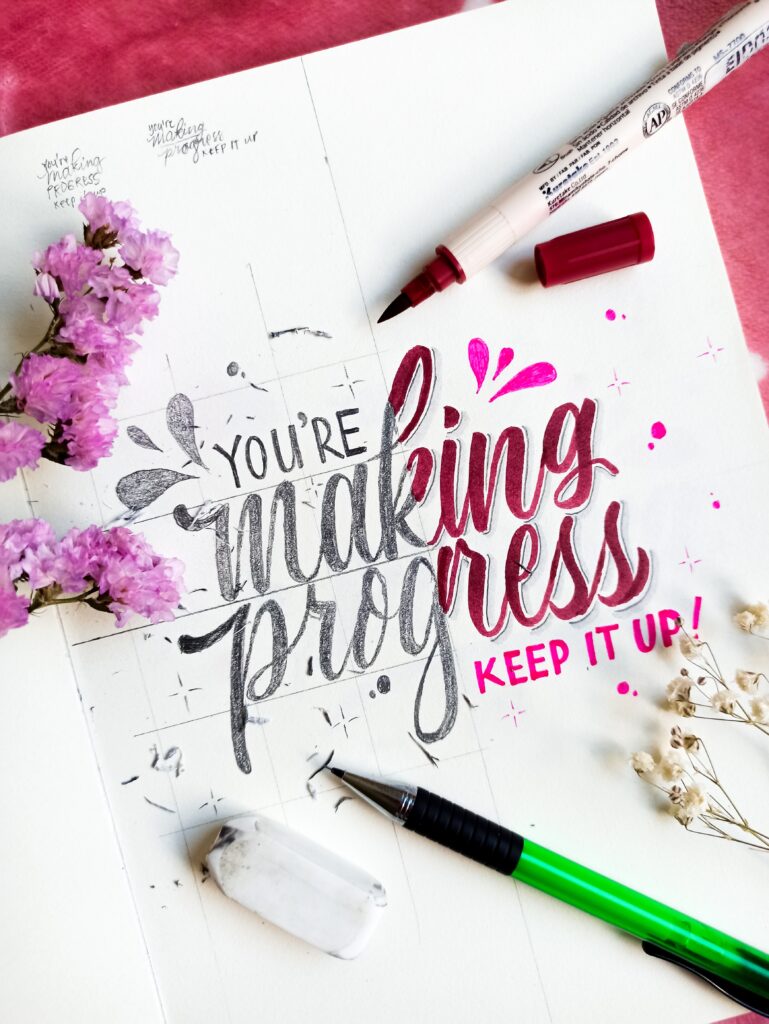Babes: get ready. Today’s topic – pouch reset, aka gastric sleeve resets – gets me heated. They’re trendy and popular and they also put me in the red because they’re also 100% bullshit.
I’m going to spill all of the tea on what a “reset” is and why I absolutely do NOT recommend them.
But before we dive in, I want to offer a trigger warning (TW): this post talks about restricting your eating in a way that can be disordered. If reading about this is not serving your best mental health, please skip this post.
Are you new around here? Welcome! I’m Jamie, registered dietitian, and bariatric patient. I’m here to support you all along your weight loss surgery journey, from prep to post-op with tips, tricks, and insider secrets from having been through weight loss surgery myself. I believe in science, good food, and the mental boost of some fabulous pink hair.
Let’s start with the beginning – what is everyone talking about with a pouch reset or gastric sleeve reset?

What is a gastric sleeve pouch “reset”?
First things first: what are we actually talking about with this “reset”?
A pouch reset, aka a gastric sleeve reset, or simply a “reset” is when you go back to the liquid diet that you followed immediately after surgery. This means, no solid foods for a few days or weeks.
The purpose of a reset is to feel full more quickly when you start eating solid food again. People also use it as a means to lose weight when they are in a stall or experiencing regain after surgery.
When your body is recovering from a pretty big-deal surgery, this liquid diet is appropriate at that time because it provides you with some nutrition while being very gentle on your body. We should be careful right after surgery: your body is healing.
Arbitrarily going back on a “reset” isn’t a good idea to do once your body is healed (even if your surgery center is recommending it – but I’ll get to that in a sec).
Why are folks talking about and recommending a pouch reset? Let’s cover that next.
What’s the appeal?
Pouch resets are a big trend in our community. People often are drawn to this idea when they feel like they’re failing and might be struggling with weight regain.
“I’ll just do a 5-day pouch reset to feel better”
“After a 48-hour pouch reset I’ll be back on track”
What’s frustrating to me is that some bariatric centers recommend resets, so it seems like the recommendation has a gold star stamp of approval.
I completely disagree with this recommendation to do a “pouch reset”. So much so that if your center is recommending them, I’d look for a new center.
Why?
All a pouch reset does is promote toxic and disordered behavior.
Let’s discuss.
What’s wrong with a pouch reset?
There are many red flags about pouch resets.
The first is that the claims are a lie. These periods of restriction do not change your stomach. Nothing will give you that same “tight” feeling as when you were immediately post-op.
Secondly, they’re offering a (false) solution to the wrong problem.
If you’re struggling with habits that aren’t serving you or feeling out of control, those are things to work on with the right support. Maybe you have underlying anxiety. Maybe you have a situation at work that is stressing you out. But no matter what, a pouch reset isn’t going to solve the problems that are making you feel out of control.
And last but not least? They do not work.
Sometimes clients will come to me and state that a pouch reset is the ONLY thing that “works” for them to get back on track. I’ll pause, and ask them one question:
“How often do you have to do a pouch reset”
The truth? For most people who have tried a pouch reset, it isn’t a one-time thing. If you ALWAYS have to go back to it then it’s not actually working long-term, even if it gets some weight off for a short time.
As a registered dietitian, I have to do my best to protect my clients from harm. And the truth is, there is a risk of harm with a pouch reset. This is basically a “detox” with a different label. Detoxes are not going to offer you any type of lasting solution and they may cause real harm along the way.
But I also have compassion for how you might be feeling right now.
If you’re struggling and feeling out of control, know that I hear you. Your feelings are valid – but a “pouch reset” isn’t the right solution. Let’s keep exploring so that we can come up with a better solution than a pouch reset.
What’s the real issue?
Food is something that has a lot of purposes for us.
Yes, it nourishes our bodies, but we also use food to soothe and nourish our spirits. Our relationship with food is just as important as the actual food that we’re eating.
If you’re feeling out of control around food, please know I have so much compassion for you. Let’s work together to find the right lasting solution, not a toxic quick fix. s it possible that you’re feeling out of control in a friendship or romantic relationship? Is work getting really heavy or stressful?
Babe, it might be time to reset your wellness routine, not your pouch.
If you’re feeling out of control in another part of your life, it is really common to focus on your eating. Meal time is something that we might have more feelings of control over, which is soothing when we might not have control over our work deadlines or some underlying tension with a friend or partner.
Or maybe you are still learning how to build a bariatric plate that satisfies you. That is another solvable problem without needing a pouch reset.
Babe; restricting your eating isn’t going to fix anything. And trying to do one anyway can cause real harm.
If there are issues that need to be dealt with, it’s time to take them head-on. But I’ll say that you do not need to take them on alone. I am a big fan of therapy; therapists are trained professionals that can have a neutral view toward what you’re working with and offer some real solutions to work through stuff, even if it feels really hard.
You also can lean on your T.R.I.B.E. community. We have heard it all! So don’t be shy about sharing your fears and concerns or asking us for help. We get it.

What if my doctor recommended this?
I recommend that you switch care providers.
I know that this may seem like a big ask, but I’m standing by it.
Doctors recommending a gastric reset is lazy medicine. It is treating your symptoms instead of doing the work to see what the real issue is.
Keep reading for what I recommend instead.
What I recommend instead
One big reason that a reset can cause so much harm is because of the restriction. Having a prescription for what you’re eating can mess with your mind and make you have higher levels of stress hormones, increasing your urge to binge in the future. Basically, a pouch reset perpetuates the binge/restrict cycle.
And just like with any quick-fix, unsustainable fad diet plan, if you lose any weight after a pouch reset, it is probably just water weight, not sustainable fat loss as you actually intended.
For these reasons, I would recommend that you focus on being a detective, investigating what is really causing your emotional distress in your life so that you can take small steps to address those issues.
And meanwhile, to feel more in control of your eating habits, focus on what you can ADD to your routine, not on what you’d restrict.
Here are a couple of ideas to focus on adding to your routine, instead of further restriction:
- Include all food groups – make sure your meals and snacks tend to have all of the food groups, especially protein.
- Use a scale to measure your food
- Make ½ your plate up of protein
- Add veggies and fiber
- Add complex carbs
- Hydrate – Drink water waiting 30 minutes between eating and drinking. Hydration can feel like a challenge after bariatric surgery; I’ve collected my best tips and strategies in this post: 6 Tips on How to Stay Hydrated After Gastric Sleeve
- Add those ZZZs – Get plenty of sleep and rest
- Move your body in a way that you enjoy.
I am also a huge proponent of therapy. While dietitians are food and nutrition experts, not all of our habits with food are about the food, you know what I mean? A therapist can help you to unpack your relationship with food in a safe space so that you can have a positive and constructive relationship with food and eating.
That’s a wrap (not a reset!)
The biggest Jedi mind trick you can do is to step away from the all-or-nothing mentality.
We are living our real lives and, Babe, they’re messy. And gray. The best things in life are not black and white: eating, living joyfully, nourishing your body, and having flexibility.
Navigating your bariatric journey takes practice and is a whole lot easier with the right support.
I’m speaking from personal and professional experience when I say that food can feel complicated and full of emotions. The journey through and beyond bariatric surgery is intense, but it is so much better when you’re in a community of people who get it. That’s why I created The TRIBE; to connect with and empower people like you!
Check out The TRIBE Membership today; we’re ready to welcome you to the group!